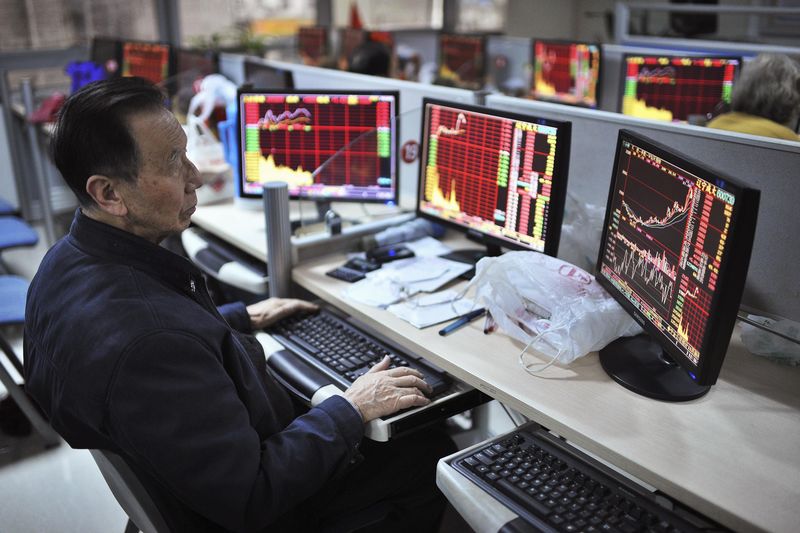By Gina Lee
Investing.com – Asia Pacific stocks were mixed on Monday morning, as uncertainties about the omicron COVID-19 variant continue and investors await U.S. inflation data later in the week.
Japan’s Nikkei 225 fell 0.67% by 9:19 PM ET (2:19 AM GMT) and South Korea’s KOSPI edged up 0.14%.
In Australia, the ASX 200 was down 0.34%, with the Reserve Bank of Australia handing down its policy decision on Tuesday.
Hong Kong’s Hang Seng Index fell 0.96%.
China’s Shanghai Composite was up 0.40% and the Shenzhen Component edged up 0.13%.
The Nasdaq Golden Dragon China Index fell to its lowest level since 2008, as the impact of Didi Global Inc.'s (NYSE:DIDI) potential delisting from the New York Stock Exchange, announced last week, continue to be felt. The index’s decline prompted the China Securities Regulatory Commission on Sunday to play down delisting fears on Sunday.
Chinese trade data, including exports, imports, and the trade balance, will be released on Wednesday. Inflation data, including the consumer price index (CPI) and producer price index, will follow a day later.
Investors continue to digest Friday’s mixed U.S. jobs report, including non-farm payrolls. More U.S. data, including the CPI, is due later in the week, which could increase the pressure on the U.S. Federal Reserve to quicken asset tapering. Minneapolis Fed President Neel Kashkari is due to speak on Thursday.
U.S. Treasury yields climbed, trimming Friday’s fall that sent the benchmark 10-year yield closer to 1.30%.
“This week’s November CPI data could trigger markets to price‑in a more aggressive tightening cycle,” Commonwealth Bank of Australia strategist Kim Mundy said in a note.
“Omicron‑related uncertainty will linger while market participants wait to learn about the severity, infectiousness, and resistance of the strain.”
European Central Bank President Christine Lagarde will speak at a conference on Wednesday, and the Eurozone GDP will be released the day before.
On the COVID-19 front, South Africa reported that omicron is not leading to higher hospitalization rates, even as concerns over the variant continue. U.S. National Institute of Allergy and Infectious Diseases director Anthony Fauci said there did not seem to be “a great degree of severity to omicron,” but added that it is too early to be certain.
Moderna Inc. (NASDAQ:MRNA) President Stephen Hoge said there is a “real risk” that existing vaccines will be less effective against omicron.
